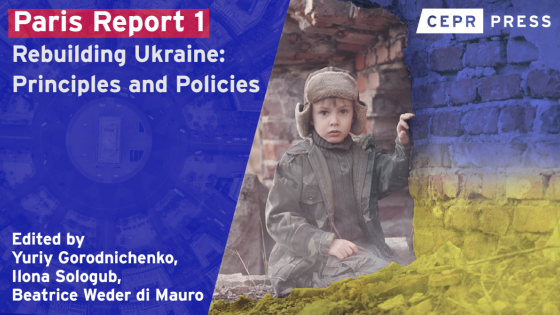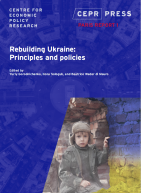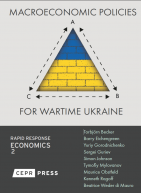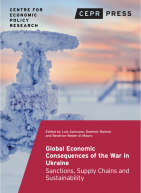Authored by leading economists from Ukraine and the West, chapters focus on infrastructure, institutions, education, and the organisation of aid. Necessary reforms will cover most elements of Ukrainian economy and society and several key principles underpin the collective strategy:
- A full-fledged democracy will empower citizens and communities and strengthen the perception that democratic ideals can facilitate economic growth and stability. In practical terms, this requires more decentralisation, a more competitive political environment and more independent media. Citizen participation should be encouraged to prolong sentiments of national unity and volunteer enthusiasm of Ukrainians beyond the war.
- Robust institutions and low levels of corruption are essential to provide stable governance and trust among citizens. Previous accessions to the EU provide a natural template for the many steps necessary to achieve this goal. Institutional reform should start early by training judges and completing civil service and judicial reform. The design of the reconstruction agency and selection of its staff can also begin in advance.
- A strong economy is critical to support reconstruction, grow labour markets to sustain returning citizens and support long-term self-sustainability. Institutional reforms will be the prerequisite for economic development but policies promoting international trade and foreign direct investment, a favourable business environment and an inclusive, resilient financial system will also be needed. At the same time modern approaches to the energy sector and urban development will reduce the reliance of Ukraine on energy suppliers and accommodate the redirection of flows of goods and people towards the EU and away from Russia. Aid to businesses in Ukraine (e.g., providing insurance against military risks, access to finance and markets) can help, not only to keep the economy running, but also to lay groundwork for the economy’s recovery and integration into the EU.
- A strong defence sector will shield the country against future Russian threats. Because high security risks could impede Ukraine’s development, Ukraine must ultimately have the autonomy to defend itself from future aggression.
Despite continued uncertainty about the direction and length of the conflict, preparation and planning can and should be initiated so that full reconstruction efforts can commence as soon as possible. Estimates of the reconstruction cost vary between $349 billion to $1.1 trillion. Although external aid will be essential in the early stages of reconstruction, private funds should take over in the longer term. The proposals in this report lay the foundation for a comprehensive rebuilding programme that will help inform policy decisions about the structure, pace, goals, and funding for Ukraine’s reconstruction.
Download the report here. You can also read a VoxEU column.
For more information, and to reach the authors, please contact CEPR Press Officer Alexander Southworth.



